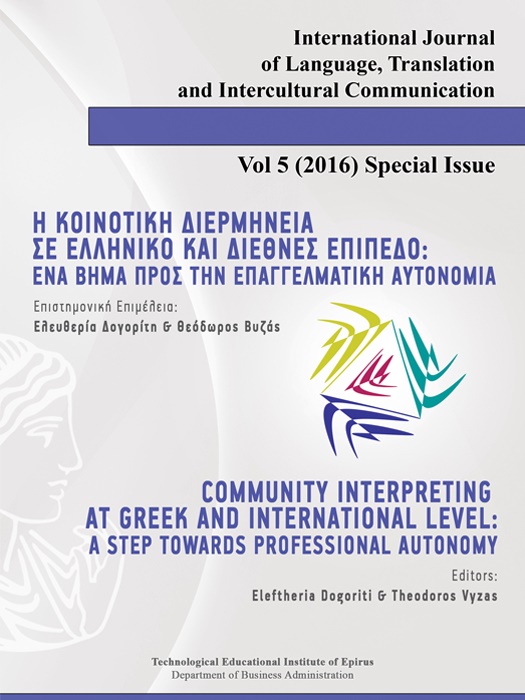Professionalization and trust in public sector interpreting.

Abstract
This article approaches interpreting in the public sector or “community” from the vantage point of the sociology of professions. The aim is to examine the interpreter function in light of the process of professionalization and concepts such as professional trust and the exercise of discretion. How well
does the interpreter function fulfill the criteria of being a profession? What is holding the process of professionalization back? In exploring these issues, I observe the interpreter function through the prism of a model of professionalization outlined by a group of Scandinavian sociologists (Molander &
Terum, 2008; Grimen 2008ab; Grimen & Molander, 2008). The model divides professionalization into performative and organizational aspects. What is the professional status of the interpreter in the public sector in terms of these aspects? The empirical data originate from chat discussions where students
with different working languages (WL) who are going through a blended course (30 ECTS) on interpreting, discuss issues of professionalization. The analysis shows that the interpreter function fulfills the criteria of the performative aspect, while the organizational aspect is less developed.
Article Details
- How to Cite
-
Skaaden, H. (2016). Professionalization and trust in public sector interpreting. International Journal of Language, Translation and Intercultural Communication, 5, 56–66. https://doi.org/10.12681/ijltic.10654
- Section
- Articles

This work is licensed under a Creative Commons Attribution-NonCommercial-ShareAlike 4.0 International License.
Copyright Notice
Authors who publish with this journal agree to the following terms:
- Authors retain copyright and grant the journal right of first publication with the work simultaneously licensed under a Creative Commons Attribution License that allows others to share the work with an acknowledgement of the work's authorship and initial publication in this journal.
- Authors are able to enter into separate, additional contractual arrangements for the non-exclusive distribution of the journal's published version of the work (e.g., post it to an institutional repository or publish it in a book), with an acknowledgement of its initial publication in this journal.
- Authors are permitted and encouraged to post their work online (e.g., in institutional repositories or on their website) prior to and during the submission process, as it can lead to productive exchanges, as well as earlier and greater citation of published work (See The Effect of Open Access).


